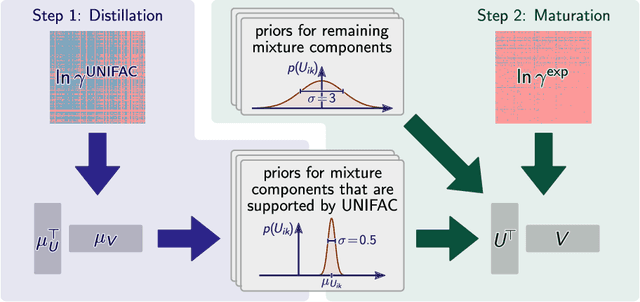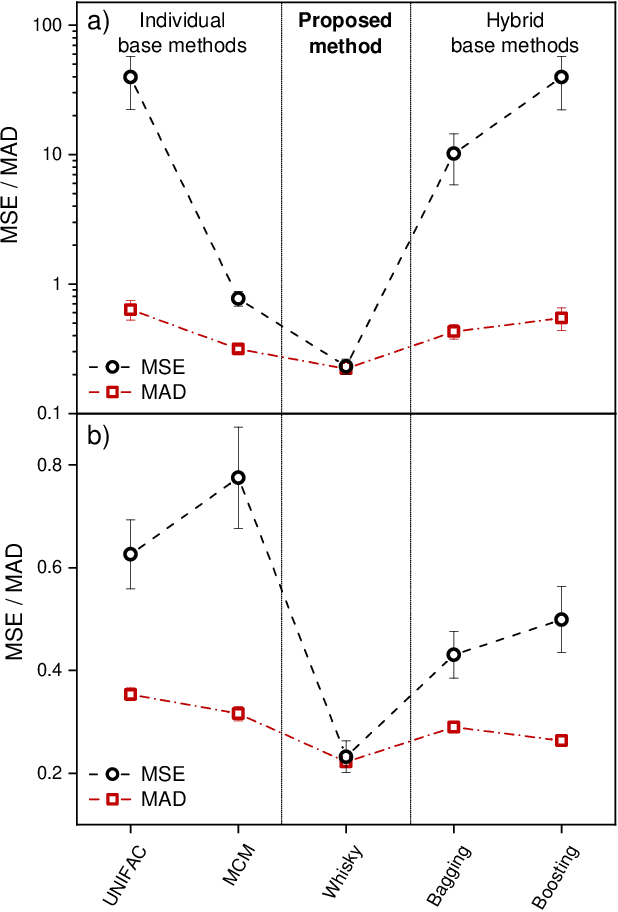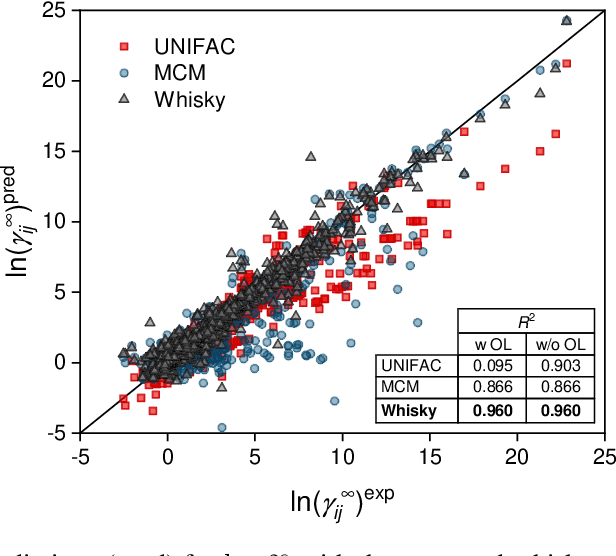Hybridizing Physical and Data-driven Prediction Methods for Physicochemical Properties
Paper and Code
Feb 17, 2022


We present a generic way to hybridize physical and data-driven methods for predicting physicochemical properties. The approach `distills' the physical method's predictions into a prior model and combines it with sparse experimental data using Bayesian inference. We apply the new approach to predict activity coefficients at infinite dilution and obtain significant improvements compared to the data-driven and physical baselines and established ensemble methods from the machine learning literature.
* Chemical Communications 56 12407, 2020 * Published version
 Add to Chrome
Add to Chrome Add to Firefox
Add to Firefox Add to Edge
Add to Edge